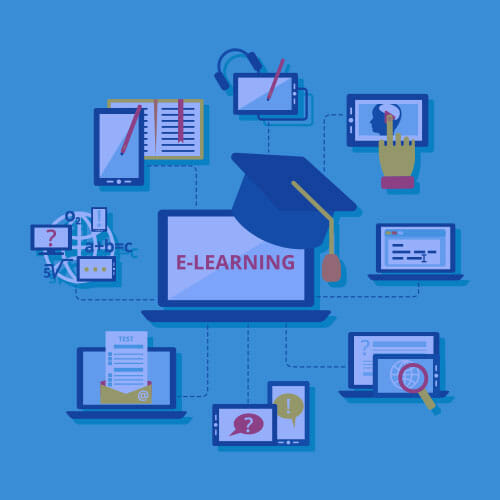Essential Retention Strategies for Entry-Level Student Affairs Professionals (Five Part Series)
Last updated August 21, 2017Course Length
3h 2m
Last Updated
August 21, 2017

Essential Retention Strategies for Entry-Level Student Affairs Professionals (Five Part Series)
Last updated August 21, 2017Table of Contents
Overview
Learn five critical components that your student affairs department needs in order to retain entry-level staff. This training series includes over three hours of content that you can use to actively address the costly retention issues that many student affairs operations face. Separated into five distinct modules, this series focuses on how your institution can work with entry-level staff to better:
- Onboard and socialize
- Set strong expectations
- Create effective training plans
- Engage in synergistic supervision
- Create intentional professional development plans
Each of the five trainings comes with its own set of additional resources for you to use in your practice. These resources include: questionnaires for assessment, scholarly articles, videos to further explain concepts, websites, and many template documents.
Who should attend?
These trainings are for student affairs departments and divisions who are looking to do a significant overhaul, or start fresh at a new beginning, on how they approach their work relationships and needs of entry-level professionals. Each training within this bundle is short, readily applicable, and full of practical learning outcomes that allow you to hit the ground running.
Agenda
Effective Onboarding and Socialization for Retaining Entry-Level Student Affairs Professionals
Dr. Ashley Tull, Clinical Associate Professor, Southern Methodist University
Onboarding and socialization is the process of learning university culture, mores[a], developing relationships, and departmental nuance. During the first weeks and months on campus, some departments spend time only training entry-level professionals for their job and spend little or no time engaging in proper onboarding and socialization. In this training, join leading researcher and practitioner Dr. Ashley Tull as he describes key onboarding and socialization processes to incorporate into your new hire processes!
Program Structure
- Key Essentials for Effective Onboarding and Socialization
- Essential 1: Understanding person-organizational fit and values through supervision
- Essential 2: Curbing job dissatisfaction and factors that influence attrition
- Essential 3: Orienting to the field and critical partners
- Three ways to put the essentials into practice
Effective Expectation Setting for Retaining Entry-Level Student Affairs Professionals
Dr. Carolyn Golz, College Administrative Officer, University of California, Santa Cruz
Expectation setting, follow-through, and communication is key to fulfilling goals in any department. In this training, our instructor will help you understand the importance of ongoing, repeated, and 360 degree expectation setting.
Program Structure
- Key Essentials for Effective Expectation Setting and Fulfillment
- Essential 1: Clear definitions and competencies
- Essential 2: The 360 degree process
- Essential 3: University and field context
- Three ways to put the essentials into practice
Engaging in Synergistic Supervision for Retaining Entry-Level Student Affairs Professionals
Dr. Matthew Shupp, Assistant Professor, Shippensburg University
Everyone has a supervisor, but are they an effective supervisor? In this training, join practitioner and researcher Dr. Matthew Shupp to learn the principles of synergistic supervision. You will leave this training with readily accessible tools and tips to immediately apply synergistic supervision to your practice with entry-level student affairs professionals.
Program Structure
- Key Essentials for Effective Synergistic Supervision
- Essential 1: Understand the model components
- Essential 2: Identifying and defying bad supervision
- Essential 3: Assessment of supervision
- Three ways to put the essentials into practice
Holistic Professional Development Plans for Retaining Entry-Level Student Affairs Professionals
Dr. Amy Denise-Halter, Student Success Projects Manager, Colorado State University
Using professional development planning as not only an attrition deterrent, but also as a growth tool, can help create a dynamic and well-rounded team. Join our expert, Dr. Amy Denise-Halter, to develop active, engaged, and competency-based professional development plans with entry-level student affairs professionals.
Program Structure
- Key Essentials for Effective Professional Development Planning
- Essential 1: Competencies and assessment
- Essential 2: Creating alignment
- Essential 3: Accountability and revision
- Three ways to put the essentials into practice
Effective Training Plans for Retaining Entry-Level Student Affairs Professionals
Dr. Ann Marie Klotz, Dean of Campus Life, New York Institute of Technology
The initial first few weeks and months of an entry-level student affairs professional’s life at a new campus or in new position are critical times when it comes to the retention of that employee. In this training, you will learn critical components and methods to train your entry-level staff with an eye for increasing retention and satisfaction in those positions.
Program Structure
- Key Essentials for Effective Training Plans
- Essential 1: Understanding your training context
- Essential 2: Training job vs. life skills
- Essential 3: Assessment of training
- Three ways to put the essentials into practice
Why Your Institution Needs This Training
Several scholarly articles in student affairs indicate that 40-60% of entry-level student affairs professionals leave the field within their first five years. While some of this can be natural attrition or bottleneck promotion issues, there is still a considerable amount of work organizations need to do to improve their retention of these entry-level pros. This high attrition level within the field is an enormous sink of time and resources that can be curbed by implementing the practices that we discuss during this training.
Tagged In
$545

